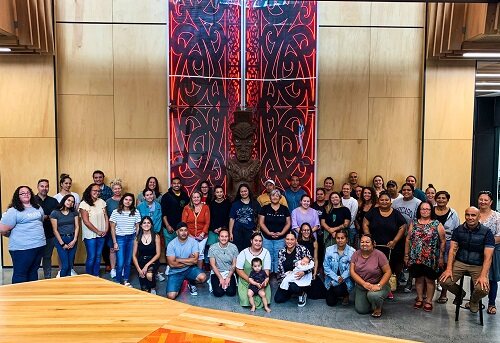The University of Waikato’s pioneering total immersion Māori language programme, Te Tohu Paetahi, is celebrating 30 years since its establishment with more than 1600 students supported on their te reo Māori journey.


Te Tohu Paetahi has been a trailblazer for the revitalisation of te reo Māori since 1991, producing students from all walks of life including District Court Judge, Stephen Clark, Dr Reuben Collier MNZM, who started his career as a journalist at Waka Huia and went on to found Maui TV Productions, and Master Chef winners Karena and Kasey Bird.
Acting Dean for the University of Waikato’s Faculty of Māori and Indigenous Studies, Associate Professor Sandy Morrison, was part of the first cohort to complete the one-year course in 1991 and says it is unique in New Zealand.
Students enter the course at different levels of fluency from those that have very little knowledge of the language to those who are fluent speakers.
“It is an intensive course running 9am to 3pm, Monday to Friday every week. There are no other courses offered like it in universities around Aotearoa,” says Associate Professor Morrison.
“People come to the course for different reasons. For some it is for professional development including judges, lawyers and teachers who use it as a vehicle to engage more meaningfully with their clients, but it has a wider impact than that. We are helping to connect people back to their culture,” says Associate Professor Morrison.
Deputy Vice-Chancellor Māori, Dr Sarah-Jane Tiakiwai, says the increasing popularity of the course across both Hamilton and Tauranga campuses is testament to the foresight of those who established it 30 years ago.
“It’s a huge commitment for students, particularly those that have no language at all, but the way the course is delivered by experienced, committed and award winning teaching staff means it can bring all levels and people from all walks of life on their te reo journey.”
Associate Professor Morrison said the need and passion for learning te reo was increasing in New Zealand as people sought to reconnect with their culture or learn the indigenous language.
“Understanding te reo Māori is to widen one’s knowledge and understanding into a Māori world view and a New Zealand world view, which is a start to creating a more inclusive Aotearoa New Zealand.”



































